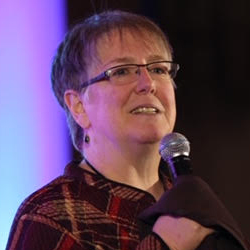[Editor’s Note: EDRM is proud to amplify the earned media of our Trusted Partners, like this interview conducted by Stephanie Wilkins, Editor-in-Chief, Legaltech News, first published April 10, 2023.]
In November 2022, e-discovery giant Relativity announced that CEO Make Gamson would be stepping down, to be replaced by new CEO Phil Saunders. At the time, Saunders told Legaltech News that a top priority was to make the transition as smooth as possible, maintaining and accelerating the momentum of the company.
Before Saunders officially took the reins on Dec. 12, 2022, Relativity saw additional upheavel, as it announced earlier that month that it was conducting layoffs and phasing out surveillance product Relativity Trace.
Now settled into the job, Saunders recently sat down with Legaltech News to discuss his first 100 days as the company’s CEO, including how the transition went, the role of AI, where the company is headed and more.
People rely on their Relativity.
Phil Saunders, Relativity CEO
This interview has been edited for length and clarity.
Legaltech News: Congratulations on hitting your 100 day mark. How has it been so far?
Phil Saunders: You learn a lot in 100 days, right? The honeymoon is sort of over for the board, my team and for me, which is okay… I will say in complete candor that I accept the fact that, while I consider myself a fast learner, this [e-discovery] space is nuanced, is different, and I don’t want to be flippant about that. I pride myself on the technology bedrock that I bring and the customer centricity that I bring, but to say that because I have a data background makes this easy … that would be just insincere.
Tell me a little about how the initial transition went.
What I have learned by spending the last 100 days with customers and partners is that … very few people have actually come from e-discovery. They all came from somewhere else. And so for me, it’s almost like, thank you, now I feel less impostor syndrome. Because you want to be an expert at what you do. And while I’m a subject matter expert in certain areas, I’m not the only one that didn’t come from e-discovery. So that was a little bit of a relief valve, candidly, and I do think the expertise serves us very, very well.
Probably the biggest litmus test for how the transition went is actually not what I think, but what [the employees think]. I think the employees have been through a lot. You know, when you have a CEO transition, that’s hard on people, because they’re trying to figure out what we know that they don’t—like, what do Mike [Gamson] and Phil know that we don’t—and I think that’s a really real feeling.
And frankly, just so we’re clear, you know, there were some adjustments made at the end of the year, right before I showed up, and if I didn’t say that it would be insincere. So you couple losing fellow Relativians, who are good people, plus the surveillance business that we maybe should or should not have been in, and then a CEO transition, that’s hard on people.
So now, in my humble opinion, it’s about rebuilding and building that trust, and I think we’ve gone a long way. I’m clearly not Mike. I don’t know if that’s all necessarily good or bad. It’s just different and change is hard. [And] I really do believe this is actually not about me. It’s actually about the company, our customers and partners. I think we get confused sometimes as leaders, where a lot of attention gets placed on us when it’s actually not about us.
There’s a phrase I like to use: b2b2c. We’re a b2b business, of course, but there is a user or consumer at the end of what we do. And if they’re having a bad day with what we do, we should be having a bad day. When they’re having a great day, we should be having a great day. And you want there to be great days. Part of what I think is an opportunity for focus is aligning ourselves with our fantastic partner ecosystem… How we engage with a partner needs to be delineated and different than how we engage with a customer. It doesn’t mean one is a higher order than the other, but how we do that collectively as partners really does ultimately serve the b2b2c. Let’s take advantage of the Relativity ecosystem.
Phil Saunders, Relativity CEO


